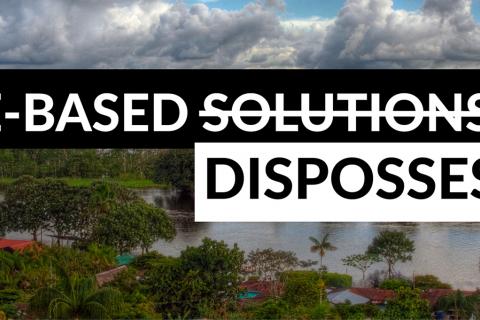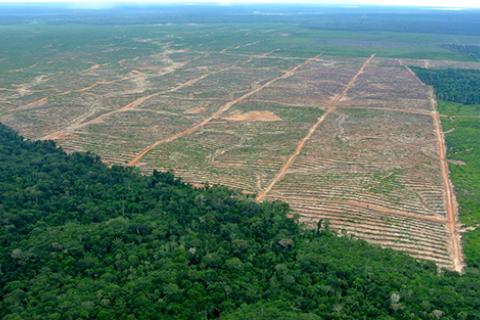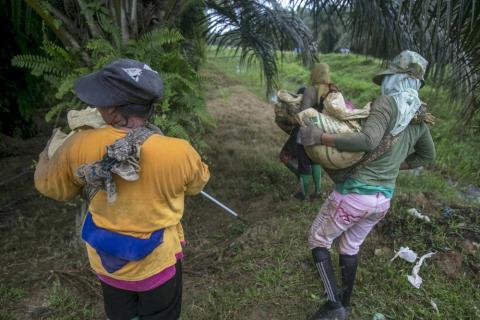It is imperative to understand the concept of ‘nature-based solutions,’ to name it for what it is: ‘nature-based dispossessions’, and to expose the real threat it poses to territories.
Bulletin articles
While the concept of ‘Nature Based Solutions’ has eagerly been seized upon by polluting industries, financial institutions and governments, its origins lie somewhere else.
The term ‘nature-based solutions,’ in the context of the exclusionary and predatory projects that gather behind it, reveals something fundamental.
Using “intersectionality” in her reflection, the author highlights how essential it is to understand how various situations of oppression often befall the same subject.
Big polluters are making ‘net zero’ pledges to satisfy the financial players that fund them. So-called ‘nature-based solutions’ are at the core of these pledges –a new corporate brand for offsets.
These companies have destroyed large territories and the devastation that comes with their fossil fuel extraction continues. Now, they are putting forest protection and tree planting at the heart of their climate strategies
The mining sector seeks to gain legitimacy and expand its frontiers of accumulation and territorial control. It does so using a discourse of sustainability and by investing in so-called “nature-based solutions.
This text shares reflections that emerged from our discussions with women impacted by Green Economy projects in Brazil.
For the world’s richest men, the environmental crisis has finally arrived. From fleeing into outer space or fantasylands to science-fiction solutions, capitalists desperately seek fossil-fuelled business as usual to continue.
Polluting corporations tell stories about reaching “Net-Zero” emissions while planning to continue, or even increase, destruction and exploitation. Offsets are at the centre of these stories. Of late, offsetting is also being championed by the financial industry.
Indigenous Karen People from Bang Kloi returned to their ancestral home in the Kaeng Krachan forests, after years of dispossession due to the creation of a National Park. Karen communities are mobilizing in solidarity to the Bang Kloi communities’ right to return home.
Can the inclusion of gender-specific policies in the operations of oil palm companies and the RSPO certification scheme do more than cover up the violence and structural patriarchy and racism inherent in the plantation model? How, in such context, do these gender policies unfold?











